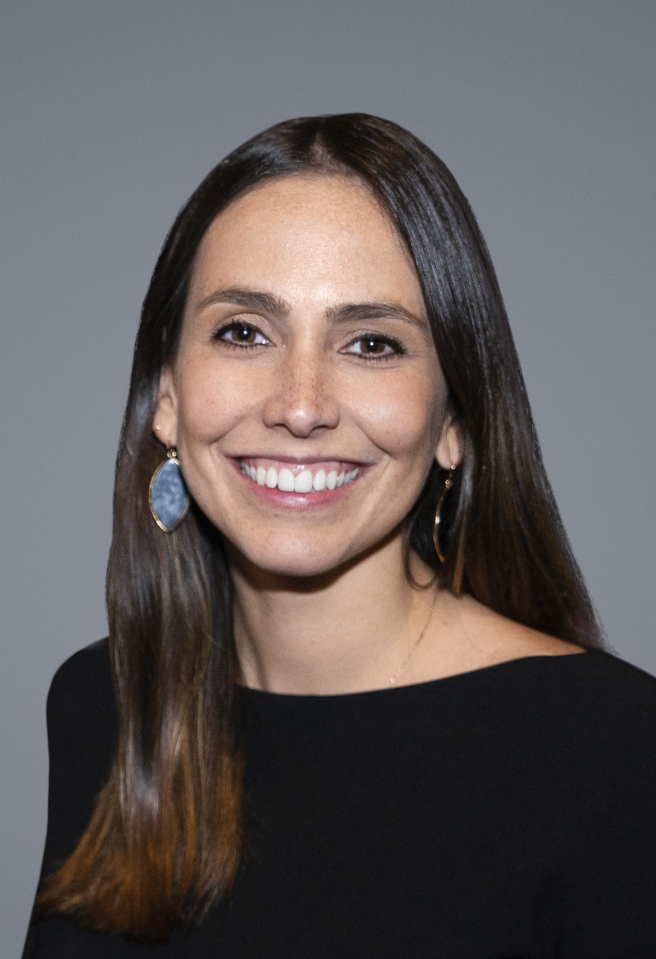Enabling Chemical Measurements at the Fingertips of Surgeons with the MasSpec Pen Technology, Livia Eberlin, Assistant Professor of Diagnostic Medicine, Department of Chemistry, University of Texas at Austin

The Department of Chemistry Presents, via Webinar: Enabling Chemical Measurements at the Fingertips of Surgeons with the MasSpec Pen Technology, Livia Eberlin, Assistant Professor of Diagnostic Medicine, Department of Chemistry, University of Texas at Austin
New technologies that enable intraoperative tissue analysis are critically needed to guide surgical procedures and improve patient outcomes. In my presentation, I will describe the clinical translation and intraoperative use of the MasSpec Pen technology for direct molecular analysis of in vivo and freshly excised tissues in the operating room. Several instrumental and device improvements were made to facilitate use in the operating room. For example, a “dual-path” MasSpec Pen interface was designed and programmed with two parallel systems that allowed simultaneous of two pens. An LED system was incorporated within the MasSpec Pen interface to announce data acquisition status during surgery, as well as audio feedback. The MasSpec Pen was used by surgeons and surgical staff during 100 surgeries over a 12-month period, allowing rapid detection of rich mass spectral profiles from 715 in vivo and ex vivo analyses performed on tissues during parathyroidectomies, thyroidectomies, breast, and pancreatic neoplasia surgeries. The MasSpec Pen enabled gentle extraction and sensitive detection of various molecular species including small metabolites and lipids using a droplet of sterile water without causing tissue damage. Interestingly, blood-related ions as well as exogenous compounds including anesthetics used in the surgical procedures were also detected intraoperatively. Notably, effective molecular analysis was achieved while no limitations to sequential histologic tissue analysis were identified and no device-related complications were reported for any of the patients. Collectively, the results obtained in this study show that the MasSpec Pen system can be successfully incorporated into the operating room, allowing direct detection of rich molecular profiles from tissues with a seconds-long turnaround time that could be transformative to inform surgical and clinical decisions without major disruptions to clinical and tissue analysis workflows.
Biography:
Livia Schiavinato Eberlin was born and raised in Campinas, São Paulo, Brazil. Her passion for mass spectrometry (MS) started as an undergraduate research assistant at the Thomson Laboratory of the State University of Campinas (UNICAMP). As an undergrad, she visited the Aston Laboratory at Purdue University to also pursue undergraduate research in MS. She received her B.S. in Chemistry from UNICAMP in 2007 and then moved to the USA in 2008 to start a PhD program in Analytical Chemistry at Purdue University under the mentorship of Prof. R. Graham Cooks. During her PhD, Livia developed and applied ambient ionization MS imaging to human cancer diagnosis. In recognition of her innovative PhD work, Livia received many awards including the Nobel Laureate Signature Award from the American Chemical Society. In 2012, she started her postdoctoral work at Stanford University under the guidance of Prof. Richard N. Zare, where she continued to develop MS technology for biomedical research. During that time, she received the L’Oréal for Women in Science Fellowship, a K99 pathway to independence award from the NIH/NCI, and was listed in the Forbes 30 under 30 list in Science and Healthcare. In 2016, Livia started her independent career as an Assistant Professor in the Chemistry Department at the University of Texas at Austin. Since then, Livia and her group have received several recognitions for their research. In 2018, Livia was named a Sloan Research Fellow, a Moore Inventor Fellow, and a MacArthur Fellow. Livia and her husband Nathan Sanders live in Austin with their three children, two daughters and a son.
Prof. Eberlin is passionate about research at the interface of chemistry and medicine. Her research group is focused on developing innovative mass spectrometry technologies to address critical problems in health-related research. For collaborations, questions, and job opportunities, please contact her at liviase![]() utexas [dot] edu.
utexas [dot] edu.

